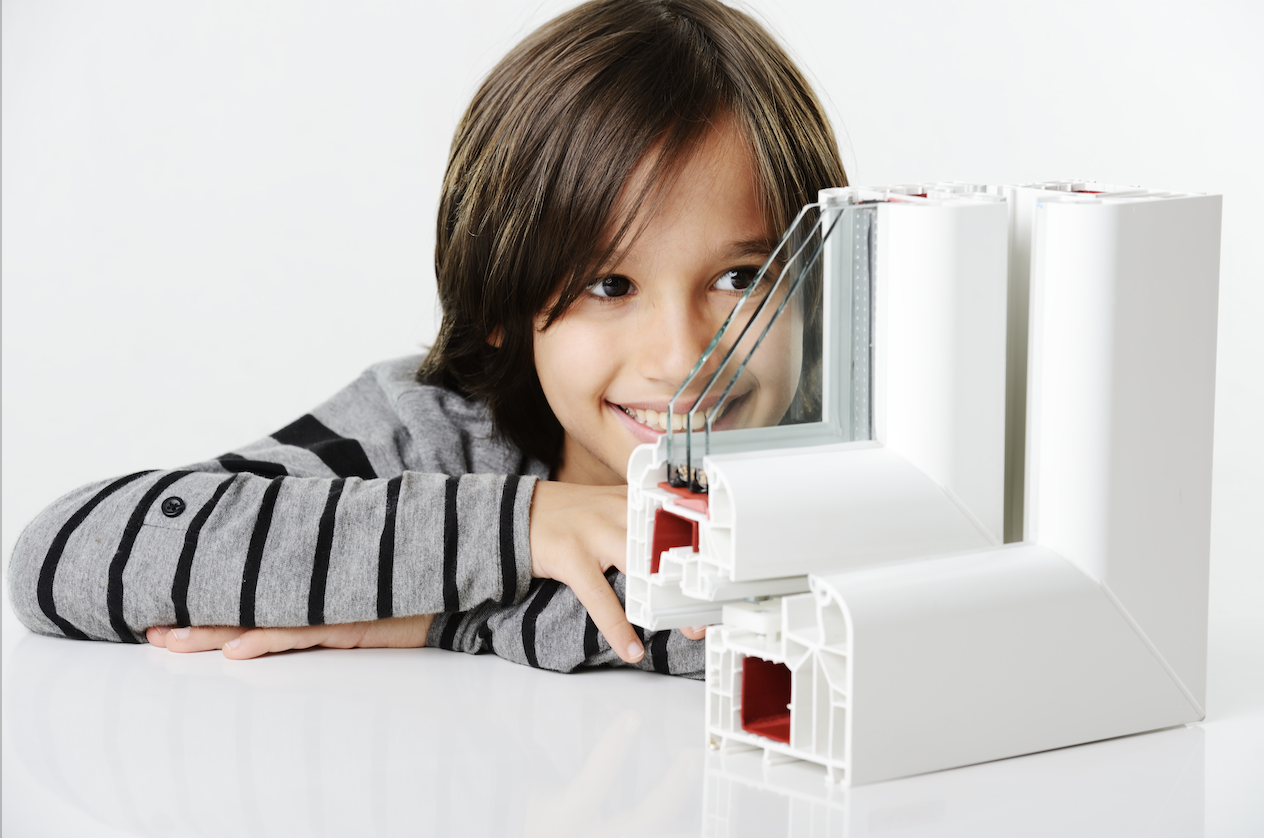Benefits of uPVC
Why is double glazed uPVC windows and doors increasing in popularity? Not only will you save money on energy bills but it will vastly improve security, increase energy efficiency and reduce noise.
GreenVue’s products are of outstanding quality, with German hardware and profiles, all windows are welded at the corners and contain steel reinforcements inside the profiles for maximum strength and durability.
Our profiles are made in Germany with a 'Tropical' mix, this means the uPVC has been stabilised for the Australasian climate and can withstand our high UV factors and our double-glazed windows are manufactured to size in our Sydney factory.

Significantly exceeding the stringent requirements of the highest classification of DIN standard 77498 for impact resistance. Complies with Australian Standards.
Check out the noise reduction our uPVC windows create:
Double glazed uPVC windows can help to reduce noise by up to 40 decibels or almost 80%. This can lead to a more peaceful home environment. GreenVue Constructions uPVC windows come up to the German DIN Standard for sound insulation Class 5, (high acoustic insulation) DIN 4109.
High-strength window and door profiles made of uPVC offer the best solution for increased safety. Our uPVC doors and windows come with a strong and efficient locking system and when used in conjunction with toughened safety/laminated glass, it would make it virtually impossible for intruders to gain entry.
Designed and manufactured with the highest insulation values. With insulated windows and doors, you’ll be able to regulate the temperature of your home more easily whilst using less energy.
Regardless of the climate GreenVue’s uPVC Windows and doors will help make your home more energy efficient and reduce heating and cooling costs. When installed correctly with the appropriate glazing unit they will comply with the latest building regulations. Our expert installers are trade qualified and follow strict quality control measures to ensure no drafts. In official tests, the window profiles easily passed the tests for Class 1 according to DIN 4108 (thermal conductivity of window).
Due to their excellent material properties, Greenvue's double glazed uPVC windows and doors will withstand extreme weather conditions like strong coastal winds, snow, heavy rain, salty air, smog and they do not alter under extreme temperature or weathering.
They have even been used in swimming pools and marine environments and passed the following test specified in BS (British Standards) 5368, Part 3 1978 (wind resistance test up to a wind pressure of 2400 PA). DIN 18055 (Resistance to driving rain). BS 6375: Performance of Windows Part 1, 1989 Classification for weather tightness. Some types achieve a 600 PA rating.
According to the Commonwealth Scientific and Industrial Research Organisation (CSIRO), approximately 32 percent of all houses in Australia currently have some termite activity, or about 130,000 homes per year. In other words, about one in three homes are affected by termites at the moment! Another benefit to GreenVue's double glazed uPVC Windows and doors is that they are fully resistant to termites.
The windows and doors come in various colours, finishes, accessories, handles, locks, glazing, glass and styles. Our outstanding quality, security features and design flexibility ensures architects, builders and home owners achieve superior results.
GreenVue’s uPVC windows and doors can be fitted into any type of property from residential to commercial buildings such as hotels, churches and hospitals. Our products can fit to suit historical buildings as we have many different finishes like golden oak.
All aluplast decor laminations feature an innovative technology for improved performance characteristics and a longer life cycle of the surfaces. Our lamination foils are provided with especially developed patent-protected pigments that considerably reduce the surface temperature of laminated window profiles. There are a variety of colour choices available. Ask us for a brochure.
uPVC (unplasticised Poly Vinyl Chloride) has been a popular choice for window frames since the 1980s. It’s a very durable material and resistant to rot and salt corrosion, which makes them perfect for coastal dwellers.
We use a “tropical” variation of extremely high quality German uPVC profiles to accommodate for the strong UV radiation. Our product has been specially designed for the Australian climate, and won’t fade in the unforgiving sunshine. No need for sanding, repainting, or varnishing. Therefore, their maintenance is reduced to simple cleaning. They will continue to look neat and new for the duration of their lives.
uPVC is naturally resistant to moisture, atmospheric pollutions, mould, and mildew. It does not rot, warp, fade, crack, rust, blister, or flake, and is not affected by salt corrosion or the sun. This makes uPVC windows and doors a long lasting alternative to timber and aluminium frames.
Australia is known for its dry heat, burning sun and unparalleled track record for devastating bushfires. The nation was ravaged in 2019 and 2020 by the most devastating bushfires and more than 10.7 million hectares were burned.
One of the major hurdles facing designers of homes in bushfire prone areas is the perception that building to high Bushfire Attack Levels (BAL) is difficult and expensive, another is that our most common and low-cost building materials are not suited for these areas which is not true.
The most commonly specified windows in Australia for example are either standard aluminium or timber frames, both of which are highly combustible and encourage flames and smoke to spread at a fast rate in the case of a fire. Glass windows, if not properly treated, can also be a hazard in their own right as sudden rises in temperature can see glass crack, shatter and fracture from the severe stress.
Fire tests show that uPVC materials are flame retardant through their product life. The profiles do not support combustion and are actually self-extinguishing. In addition to this, they are also weather resistant to extreme temperatures and severe weather conditions and will not be affected. The special profile compound possesses a fire-retardant rating according to DIN 4102. It also fulfils Class 1 fire resistance (ie. most resistant) as defined in BS (British Standards) 476: Part 7.
